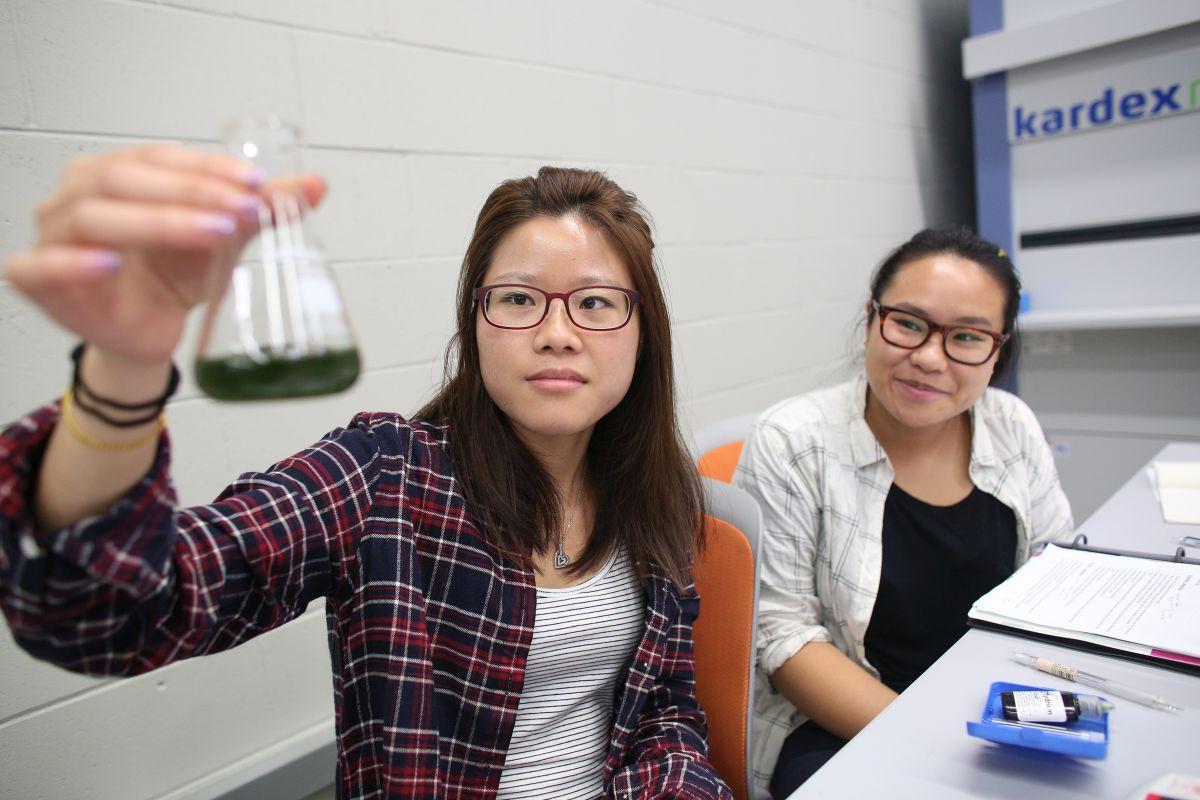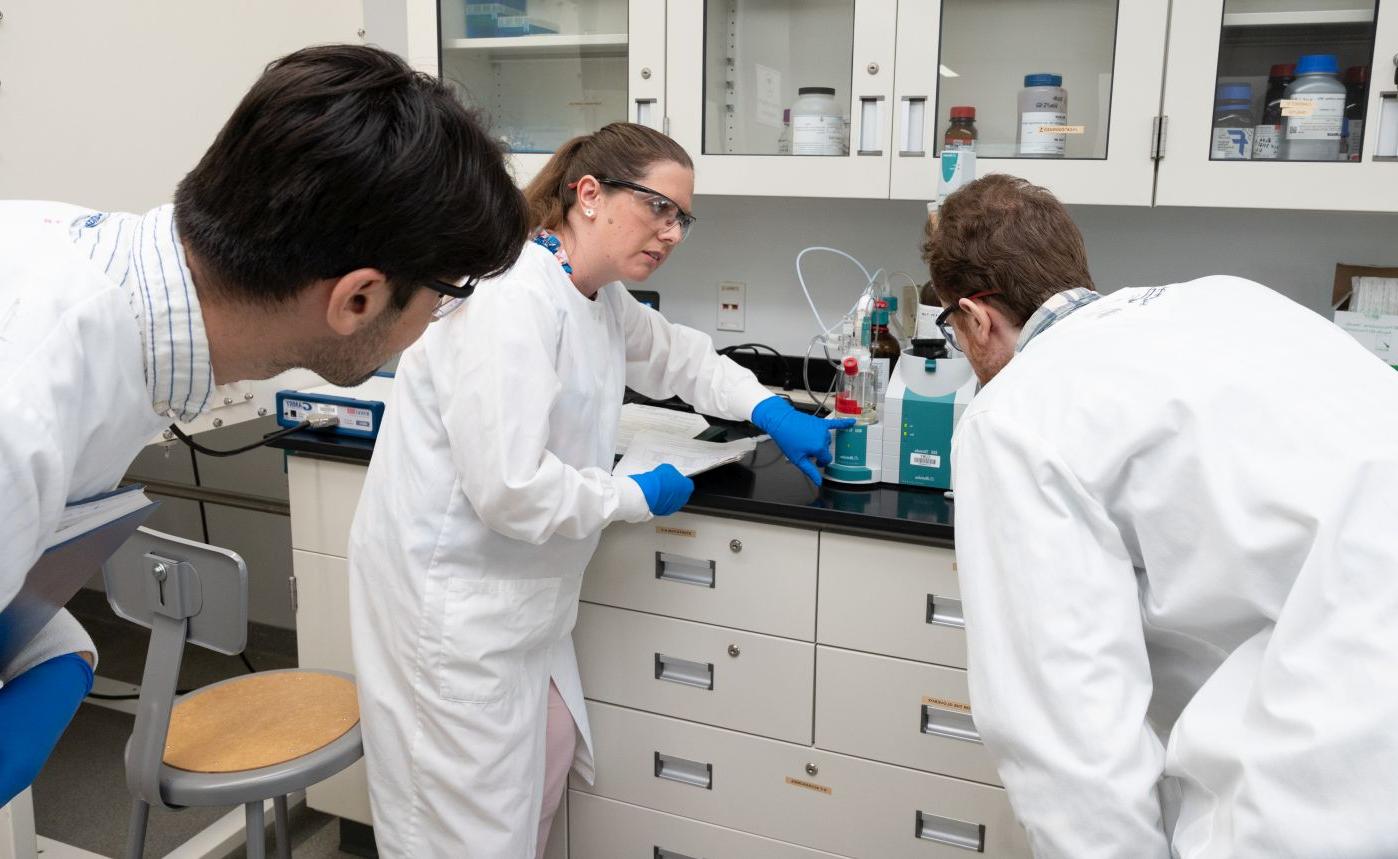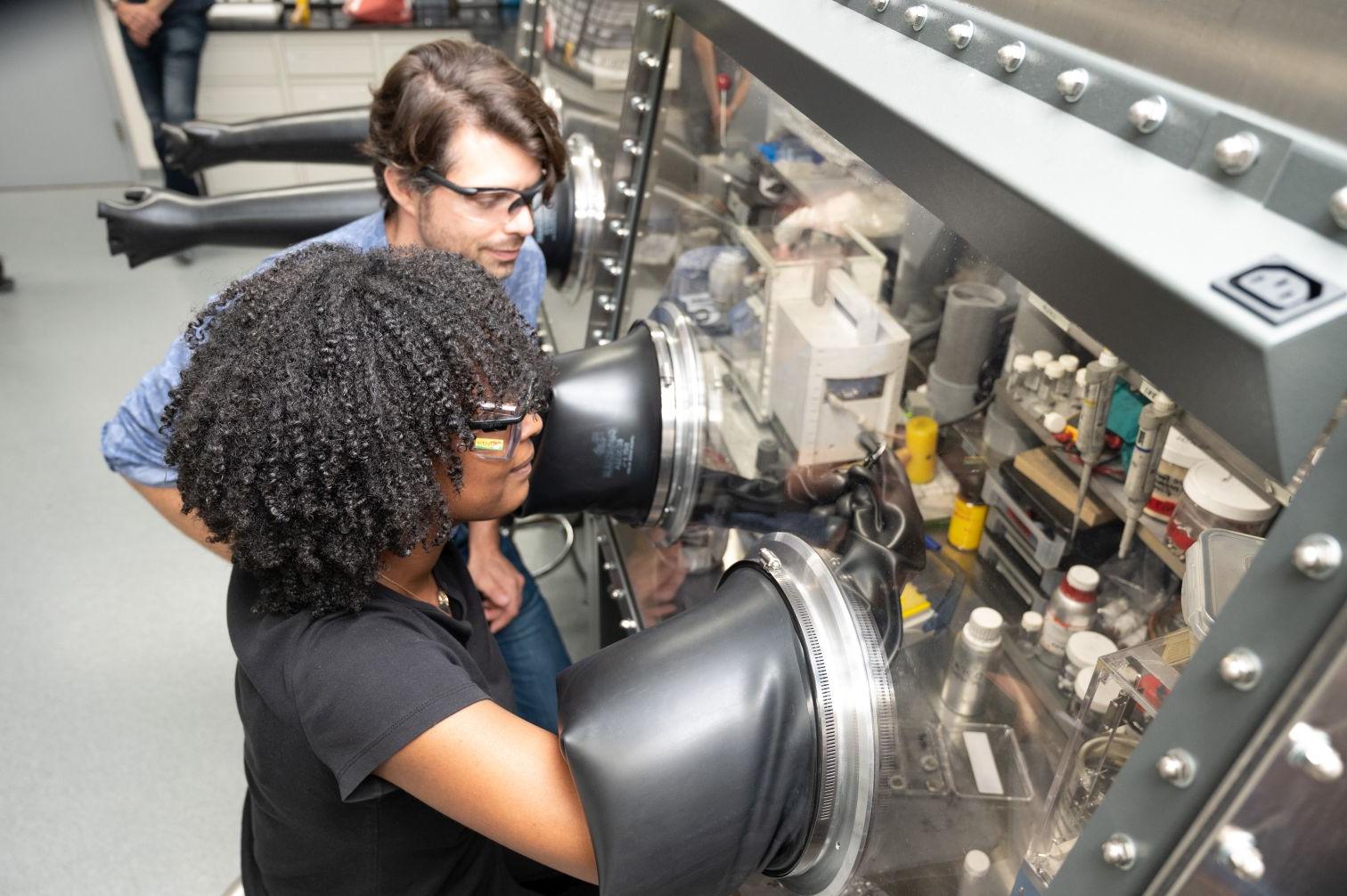


在城市学院做365体育平台
有八个学校和部门, CCNY致力于365体育平台和知识发现的进步.
- 伯纳德和安妮斯皮策建筑学院(SSA) 是纽约市的旗舰公立建筑学校吗. 它强调城市环境是365体育直播项目和形式的适当性的最重要的思想来源,这使它在纽约和周边地区的建筑学校中独树一帜.
- 的使命 纽约市立大学医学院 是培养广受教育的人吗, 高技能的医疗从业人员为初级保健从业人员历来服务不足的社区提供高质量的卫生服务.
- 2013年,365体育直播正式成立 科林·鲍威尔公民与全球领导力学院(CPS). 它将CCNY的社会科学部与学院的科林·鲍威尔领导与服务中心联合起来.
- 教育学院(SOE) 准备知识渊博的, 有资格并致力于教学和领导多元化社区的反思和关怀教育工作者.
- 格罗夫工程学院(GSOE) 它的起源可以追溯到城市学院成立之初,1853年,所有学生都必修土木工程课程. 大约有3300名学生攻读学士学位、硕士学位和博士学位.D. 在广泛的工程学科水平.
- 人文艺术部(HA) CCNY设有8个学部和4个跨学科专业, 通过内部和外部赠款和奖学金开展广泛主题的365体育平台.
- 工人教育中心(CWE)跨学科365体育平台部 位于纽约市市中心的城市学院卫星校区. 它的使命是专注于为来自纽约市和周边地区的在职成年人提供优质的大学教育.
- 科学部(DOS) 安置生物学, 化学与生物化学, 地球与大气科学, 数学系和物理系, 积极参与由大多数联邦机构和其他赞助者资助的365体育平台.
CCNY以其地球科学、遥感和能源365体育平台而闻名. 它的NOAA- cessrst项目是一个由NOAA资助的合作科学中心(CSC),旨在教育和培训多样化的学生骨干和早期职业科学家和工程师,使他们成为NOAA相关STEM科学领域的高素质专业人员. NOAA-CESSRST涉及工程和科学领域的教师和365体育平台人员. 位于纽约市立大学的纽约市立大学能源365体育平台所旨在通过吸引,加速全球能源向净零转型,为社会创造更美好的能源未来, 发展和装备多样化的未来能源劳动力, 通过召集专业知识和建议,为能源决策提供信息, 使工业和消费者能够降低能源的碳排放, 更安全、更高效. CCNY致力于开发更好的储能电池, 智能电网提供更高效、更有弹性的能源基础设施和先进技术,以应对全球变暖的挑战. 跨工程协作, 城市学院的物理科学和社会科学, 格罗夫工程学院的教职员工, 科学部, 建筑学院, 人文艺术系, 由博士领导. 雅娜Kuchev, 他是CCNY科林·鲍威尔公民与全球领导力学院的社会学助理教授, 共同着手一项由ccny资助的名为““大学365体育平台愿景倡议”(CRV) 进行跨学科的365体育平台,提供前瞻性的观点,并在365体育平台和创新的前沿发现新的机会. 这个CRV-2022项目名为“激励公平:通过气候团结共同打造可扩展的城市韧性” 是为了回答一个框架性的问题:如果围绕气候行动的团结一致被用来重新构想和共同创造纽约市的未来,会怎么样?
在量子365体育平台中, 理学院和格罗夫工程学院的365体育平台人员正在努力开发先进材料, 更好地理解光子学, 新的量子计算算法和自旋在原子水平上的控制. 在网络安全, 格罗夫工程学院的教师和学生都在追求识别威胁和确保网络安全的技术. CCNY各个学科的365体育平台团队要么将人工智能技术应用到他们的365体育平台领域,要么开发更好的算法, 比如在辅助生活技术中开发更好的生物传感器或更有能力的机器人设备. 纽约大学医学院, 科学部, 和CCNY的格罗夫工程学院在生命科学的发现方面处于领先地位, 脊髓损伤, 神经科学与工程, 心血管工程和肌肉骨骼生物材料.
Cyber-physical系统, 自主导航, 三维同步定位和绘图以及辅助生活和群体机器人是CCNY机器人365体育平台工作的一部分, 主要由GSOE的工程学院成员领导. 交通运输相关和基础设施365体育平台是纽约市立大学交通系统365体育平台所(CITS)和纽约市立大学交通365体育平台中心(UTRC)工程365体育平台重点的一部分
这些只是城市学院365体育平台活动的一小部分. 除了, 在学院的各个学院和部门中,有大量的教师让本科生参与到他们的365体育平台中来,这使得城市学院成为纽约大都会地区最大的本科生365体育平台项目. 365体育直播是一所R2大学: 博士大学——高365体育平台活动 卡内基分类法, 指定的少数族裔服务机构(MSI)和西班牙裔服务机构(HSI).
联系信息
Dr. Ranajeet Ghose用
临时365体育平台副教务长
化学与生物化学教授
行政大楼218楼
Convent Avenue 160号
纽约,NY 10031
电子邮件:
re搜索@ccny.城市大学.edu